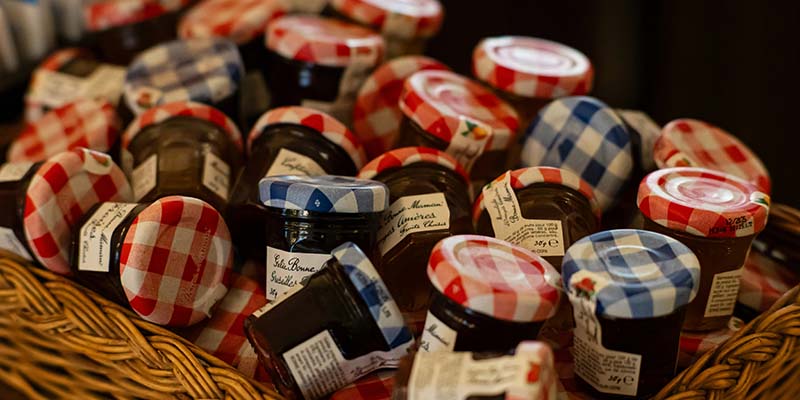
Exploring Fermented Foods: Health Benefits and Recipes
 Recipe & Gourment
Recipe & Gourment Ever wonder why so many people are talking about fermented foods? Is it just a fad, or is there something special about them? If you're interested in how these tangy, flavorful foods can help your gut health and want to give some Fermented Foods Recipes a shot, read on.
Ever wonder why so many people are talking about fermented foods? Is it just a fad, or is there something special about them? If you're interested in how these tangy, flavorful foods can help your gut health and want to give some Fermented Foods Recipes a shot, read on.
Fermentation is the ancient food preservation method in which natural bacteria or yeast turns sugars into acids, gases, or alcohol. It, in turn, increases shelf life, improves flavour, and increases the nutritional value. In the context of this presentation, the most common items include yoghurt, kimchi, sauerkraut, and kombucha.
These foods are valued for that unique tangy taste and serve as homemade probiotic foods full of live, beneficial bacteria. The great thing about these good bacteria is that they can truly work wonders for your health. Here are some of the benefits of fermented food have for your health:

Your gut contains trillions of bacteria, part of your gut microbiome. A balanced microbiome is necessary for digestion, the functioning of your immune system, and even mental health. Fermented foods can help add healthy probiotics into your body to potentially rebalance your gut bacteria, and therefore make issues such as bloating or constipation much less common.
2. Improved Nutrient Absorption
Do you know these foods help your body absorb nutrients better? When it is in good condition and balanced, your gut will have an enhanced ability to absorb vitamins and minerals through the food. For instance, fermentation increases the bioavailability of nutrients such as B vitamins and Vitamin K2 in the food.
3. Strengthened Immune System
A healthy gut means a stronger immunity system. Around 70% of your immune cells are held in your gut, meaning probiotics are a true ally in fighting off infections. Adding homemade probiotic foods such as kefir or kombucha to your diet can help you gift your immune system with needed support.
4. Better Mental Health
Believe it or not, your gut and brain are strongly connected. The link is referred to as the gut-brain axis, meaning an unhealthy gut could be contributing to a feeling of anxiety or depression. Foods that are fermented support a healthy balance of a microbiome, which aids in supporting mental well-being.
Easy Fermented Vegetable Recipes to Try
Feeling inspired to begin making your homemade probiotic foods? The best thing is that you don't need fancy equipment or more skills for this. Try these two easy fermented vegetable recipes at home. Begin small, and the kitchen might turn out to be your fermentation lab!
Simple Sauerkraut
Ingredients:
One medium head of green cabbage
1-2 tablespoons sea salt
Steps:
1. Chop the cabbage into thin strips.
2. Place the cabbage in a bowl, sprinkle it with sea salt, and massage it with your hands. Do this for about 10 minutes until the cabbage releases its juices.
3. Pack the cabbage snugly into a sterilized jar. Make sure it's submerged in its own liquid to avoid mould growth.
4. Cover the jar, but not too tightly, with a lid or a cloth, and store it on your counter for 1-2 weeks, tasting occasionally until it reaches your desired level of tanginess.
5. Once ready, refrigerate and enjoy your homemade sauerkraut!
Fermented Carrot Sticks
Ingredients:
1 pound carrots (cut into sticks)
2 cups filtered water
One tablespoon of sea salt
Steps:
1. Dissolve the salt in the filtered water to make a brine.
Fermented Drinks for a Health Boost
That's it! These easy fermented vegetable recipes are a simple and satisfying way to get started with fermentation. Plus, they add a tangy, refreshing taste to salads or sandwiches.
If you hate vegetables, why not drink your probiotics? You can also consider fermented tea, called kombucha. It has been in vogue over the past couple of years, and people drink it because it is full of probiotics, antioxidants, and other nutrients that help keep the gut healthy. Surprisingly, it's easy to make it at home with a SCOB or symbiotic culture of bacteria and yeast. You can buy it, too.
Other fermented drinks to consider include kefir (a tangy dairy drink) and beet kvass (made from fermented beets). These beverages are a fun way to spice up your fermentation adventures!
Tips for Success with Fermentation
While making fermented foods recipes at home might seem intimidating at first, it's all about following a few basic rules:
Keep it clean: Use sterilized jars and utensils to avoid contamination.
Be patient: Fermentation takes time, but trust the process! Tasting as you go is the key to learning how you like your fermented foods.
Use quality ingredients: Fresh produce and non-iodized salt make a big difference in the flavor and success of your fermentation efforts.
Embrace the Fermentation Journey
Turning ordinary ingredients into tasty, probiotic-rich dishes doesn't have to be complicated. All you need is curiosity and a few simple kitchen staples. Whether you're experimenting with easy fermented vegetable recipes, sipping kombucha, or discovering new ways to boost gut health, there are many reasons to join the fun of this ancient culinary tradition.
Explore the fermentation world and make your very own probiotic foods homemade. Enjoy the textures and flavors, and let your body and mind thank you for this extra ration of health and wellness!
